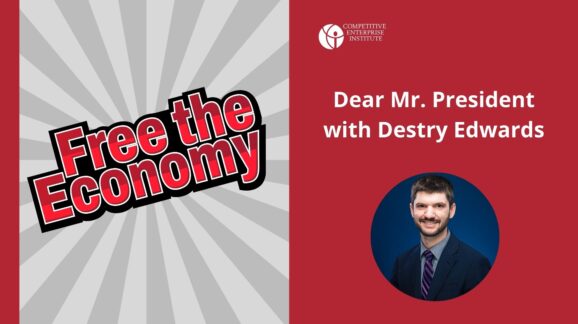There are two main areas in which Congress can enact meaningful reform. The first is to rein in regulatory guidance documents, which we refer to as “regulatory dark matter,” whereby agencies regulate through Federal Register notices, guidance documents, and other means outside standard rulemaking procedure. The second is to enact a series of reforms to increase agency transparency and accountability of all regulation and guidance. These include annual regulatory report cards for rulemaking agencies and regulatory cost estimates from the Office of Management and Budget for more than just a small subset of rules.
In 2019, President Trump signed two executive orders aimed at stopping the practice of agencies using guidance documents to effectively implement policy without going through the legally required notice and comment process.
Featured Posts

Blog
The week in regulations: Medical devices and tuna
President Trump proposed a 100 percent tariff on foreign movies, and reopening Alcatraz. The US and UK announced a trade deal. The Vatican named a new…

Blog
Free the Economy podcast: Dear Mr. President with Destry Edwards
In this week’s episode we cover the economic slowdown from tariffs, more accountability for independent agencies in the federal government, and…

Blog
The week in regulations: Steel tariff inclusions and policies for arresting journalists
The 2025 edition of Wayne Crews’s Ten Thousand Commandments is out now. The economy shrank 0.3 percent in the first quarter of 2025…
Search Posts
News Release
Reviving Real Regulatory Reform
Full Document Available in PDF Washington, D.C., March 24, 2005—Congress and the President, now more than…
News Release
CEI Congratulates DOE on Emissions Decision
Contact: <?xml:namespace prefix = o ns = “urn:schemas-microsoft-com:office:office” /> <?xml:namespace prefix = st1 ns = “urn:schemas-microsoft-com:office:smarttags” />Richard Morrison, 202.331.2273…
Op-Eds
Bureaucrats upending NIH
The National Institutes of Health (NIH) faces a revolt by its employees over new, draconian conflict-of-interest rules. They ban all consulting (paid or unpaid) for…
Op-Eds
Ponzi’s Scheme Still Works
Many have heard of Charles Ponzi, the 1920s flimflam — man whose name is now synonymous with con artistry The Oxford English Dictionary defines a…
Op-Eds
Misnamed Activists Are Thorns In Rose Of Agbiotech Foods
In a spin-dominated world where activists claim—often on the flimsiest of data—that this, that or the other thing causes cancer or threatens the…
Op-Eds
Risks in the Modern World: What Prospects for Rationality?
Risk refers to the likelihood that something will go wrong.[1] People naturally fear such mishaps, and risk aversion is a basic survival trait. Only non-survivors…
Staff & Scholars

Clyde Wayne Crews
Fred L. Smith Fellow in Regulatory Studies
- Business and Government
- Consumer Freedom
- Deregulation

Ryan Young
Senior Economist
- Antitrust
- Business and Government
- Regulatory Reform

Fred L. Smith, Jr.
Founder; Chairman Emeritus
- Automobiles and Roads
- Aviation
- Business and Government

Sam Kazman
Counsel Emeritus
- Antitrust
- Automobiles and Roads
- Banking and Finance

Marlo Lewis, Jr.
Senior Fellow
- Climate
- Energy
- Energy and Environment